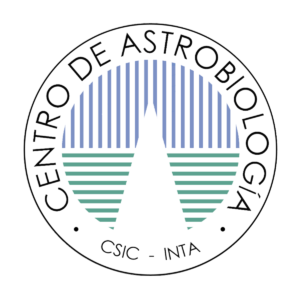Korablev, O.;Montmessin, F.;Trokhimovskiy, A.;Fedorova, A. A.;Shakun, A. V.;Grigoriev, A. V.;Moshkin, B. E.;Ignatiev, N. I.;Forget, F.;Lefèvre, F.;Anufreychik, K.;Dzuban, I.;Ivanov, Y. S.;Kalinnikov, Y. K.;Kozlova, T. O.;Kungurov, A.;Makarov, V.;Martynovich, F.;Maslov, I.;Merzlyakov, D.Moiseev, P. P.;Nikolskiy, Y.;Patrakeev, A.;Patsaev, D.;Santos-Skripko, A.;Sazonov, O.;Semena, N.;Semenov, A.;Shashkin, V.;Sidorov, A.;Stepanov, A. V.;Stupin, I.;Timonin, D.;Titov, A. Y.;Viktorov, A.;Zharkov, A.;Altieri, F.;Arnold, G.;Belyaev, D. A.;Bertaux, J. L.;Betsis, D. S.;Duxbury, N.;Encrenaz, T.;Fouchet, T.;Gérard, J. -C.;Grassi, D.;Guerlet, S.;Hartogh, P.;Kasaba, Y.;Khatuntsev, I.;Krasnopolsky, V. A.;Kuzmin, R. O.;Lellouch, E.;Lopez-Valverde, M. A.;Luginin, M.;Määttänen, A.;Marcq, E.;Martin Torres, J.;Medvedev, A. S.;Millour, E.;Olsen, K. S.;Patel, M. R.;Quantin-Nataf, C.;Rodin, A. V.;Shematovich, V. I.;Thomas, I.;Thomas, N.;Vazquez, L.;Vincendon, M.;Wilquet, V.;Wilson, C. F.;Zasova, L. V.;Zelenyi, L. M.;Zorzano, M. P. 2018. The Atmospheric Chemistry Suite (ACS) of Three Spectrometers for the ExoMars 2016 Trace Gas Orbiter. Space Science Reviews 214, 1, DOI: 10.1007/s11214-017-0437-6
The Atmospheric Chemistry Suite (ACS) package is an element of the Russian contribution to the ESA-Roscosmos ExoMars 2016 Trace Gas Orbiter (TGO) mission. ACS consists of three separate infrared spectrometers, sharing common mechanical, electrical, and thermal interfaces. This ensemble of spectrometers has been designed and developed in response to the Trace Gas Orbiter mission objectives that specifically address the requirement of high sensitivity instruments to enable the unambiguous detection of trace gases of potential geophysical or biological interest. For this reason, ACS embarks a set of instruments achieving simultaneously very high accuracy (ppt level), very high resolving power (>10,000) and large spectral coverage (0.7 to 17 mu m-the visible to thermal infrared range). The near-infrared (NIR) channel is a versatile spectrometer covering the 0.7-1.6 mu m spectral range with a resolving power of similar to 20,000. NIR employs the combination of an echelle grating with an AOTF (Acousto-Optical Tunable Filter) as diffraction order selector. This channel will be mainly operated in solar occultation and nadir, and can also perform limb observations. The scientific goals of NIR are the measurements of water vapor, aerosols, and dayside or night side airglows. The mid-infrared (MIR) channel is a cross-dispersion echelle instrument dedicated to solar occultation measurements in the 2.2-4.4 mu m range. MIR achieves a resolving power of >50,000. It has been designed to accomplish the most sensitive measurements ever of the trace gases present in the Martian atmosphere. The thermal-infrared channel (TIRVIM) is a 2-inch double pendulum Fourier-transform spectrometer encompassing the spectral range of 1.7-17 mu m with apodized resolution varying from 0.2 to 1.3 cm(-1). TIRVIM is primarily dedicated to profiling temperature from the surface up to similar to 60 km and to monitor aerosol abundance in nadir. TIRVIM also has a limb and solar occultation capability. The technical concept of the instrument, its accommodation on the spacecraft, the optical designs as well as some of the calibrations, and the expected performances for its three channels are described.






